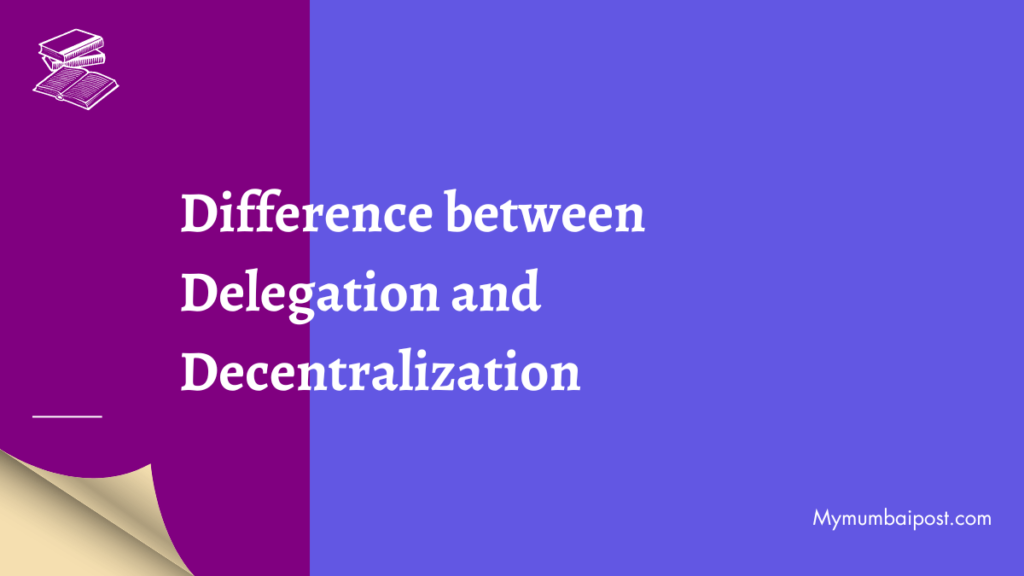
Explore 15 Key Difference between Delegation and Decentralization
Delegation and decentralization are two important concepts in organizational management that play a crucial role in distributing power and authority within a company or institution. While they may seem similar at first glance, there are distinct differences between the two that greatly impact how work is assigned, decisions are made, and accountability is established. Let’s explore 15 key difference between delegation and decentralization that will help you to prepare your answer.
Difference between Delegation and Decentralization
Power Distribution: While decentralisation entails the distribution of power and decision-making across multiple levels or units within an organisation, delegation entails moving authority from a higher level to a lower level.
Authority: Decentralisation involves giving lower levels or departments more freedom and autonomy while delegation typically entails the assignment of specific tasks or responsibilities.
Decentralisation gives lower-level managers or departments the freedom to make decisions on their own, whereas delegation places the ultimate decision-making authority with the higher-level manager.
Control: Decentralisation distributes control among various levels or units, resulting in shared responsibility, as opposed to delegation, which maintains a higher level of control by the delegating authority.
Accountability: Decentralisation establishes accountability at the lower levels or departments where decision-making takes place, whereas delegation holds the higher-level manager responsible for results.
Flexibility: Decentralisation offers flexibility by enabling decision-making closer to the point of action, whereas delegation allows for quick adjustment and adaptation because the higher-level manager can change assignments as needed.
Organisational Structure: Decentralisation encourages a flatter, more distributed structure, whereas delegation is frequently characterised by a more centralised organisational structure, where authority flows from the top down.
Communication: Decentralisation encourages horizontal communication and collaboration among various units or departments, whereas delegation primarily flows from the higher level to the lower level.
Utilisation of expertise: Decentralisation encourages the use of specialised knowledge within various units or departments, whereas delegation ensures that tasks are assigned to people with the necessary expertise.
Decision-Making Speed: Decentralisation may involve more consultation and consensus-building, which could result in a potentially slower decision-making process, whereas delegation allows for quicker decision-making as the higher-level manager retains authority.
Adaptability: Decentralisation allows for faster adaptation and innovation at lower levels or departments, whereas delegation may limit adaptability because changes in assignments require approval from the higher-level manager.
Managerial Workload: Decentralisation divides the workload among several managers or departments, while delegation reduces the workload of higher-level managers by assigning tasks to lower-level employees.
Training and Development: While decentralisation emphasises the development of managerial capabilities at various levels, delegation places more emphasis on the skill development of specific employees.
Consistency in Decision-Making: While decentralisation promotes consistency because decisions are made in accordance with established policies or guidelines, delegation can result in inconsistent decision-making because each higher-level manager may have different preferences.
Organisational Culture: While decentralisation fosters a culture of empowerment, accountability, and initiative at various levels of the organisation, delegation may foster a culture of dependence and reliance on higher-level managers.
Understanding these difference between delegation and decentralization is crucial for managers as they determine the most suitable approach for assigning tasks, making decisions, and fostering an effective organizational structure that aligns with the goals and values of the company. By carefully considering these factors, managers can strike the right balance between centralized control and distributed authority to optimize organizational performance and employee engagement.
Also Read: Explore 15 Difference between Coercion and Undue Influence